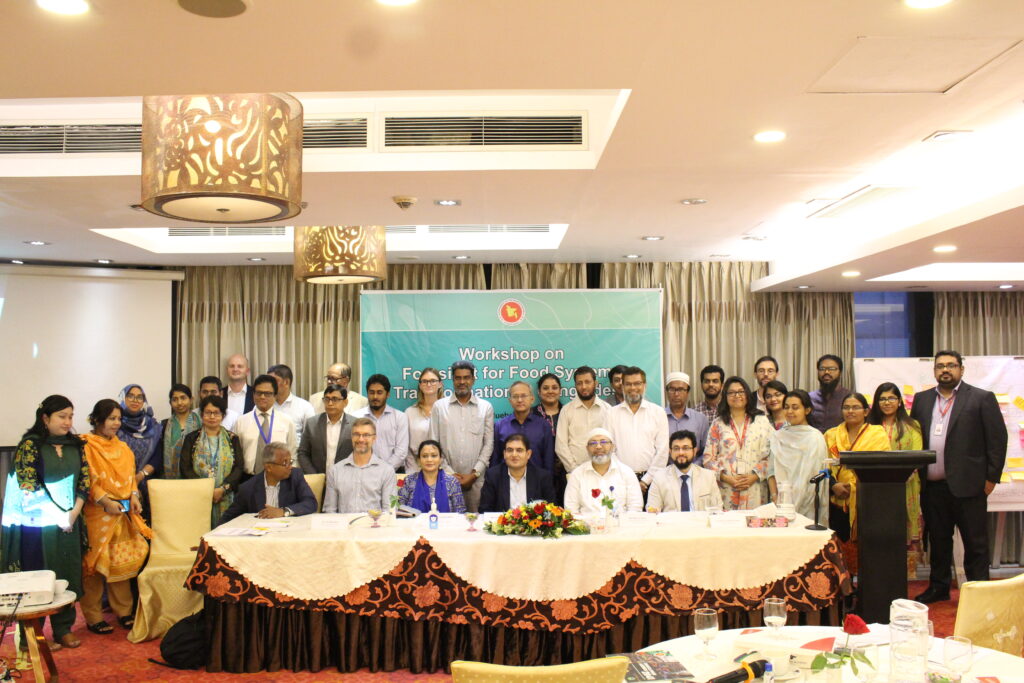Dhaka, October 2023 – Bangladesh is already working towards the goals for its Vision 2041 to develop the socio-economic standing of the country, hence welcoming efforts from the Foresight4Food initiative to bring about food systems change. As a part of activities planned under Foresight for Food Systems Transformation – FoSTr programme, the Foresight4Food team organized an engaging workshop on ‘Foresight for food systems change agenda for Bangladesh’.
The objective of the two-day workshop was to capture the current state of the food system transformation agenda and its key policy questions, explore stakeholders in the possibilities of foresight to address key policy questions, and co-create a foresight for the food systems change research agenda for Bangladesh. The workshop consisted of panel discussions, recap and validation of draft scenarios, exploring foresight tools, and mapping existing activities/ research across the food system framework. There was also presentations by research partners on how their work aligns with the 5 themes of the proposed foresight agenda in Bangladesh and identifying research gaps.


The workshop had several interesting outcomes including:
- A productive engagement with FoSTr Bangladesh research partners, identifying areas where they could potentially contribute towards the foresight agenda in Bangladesh.
- Enthusiasm and interest from stakeholders in using foresight and scenario analysis to support the Bangladesh food system transformation agenda by various decision makers and ministry representatives.
- Engaging discussions with key stakeholders including research organizations, policy makers, governmental representatives, civil society, and private sector on how to use foresight to support food system transformation in Bangladesh.
- Mapping data and research across the Bangladesh food system.
- Detailed planning of a foresight for food systems change research agenda for Bangladesh, identifying priority deliverables up to 2025.
Foresight4Food team’s visit to Bangladesh was also marked with a meeting with research partners including Bangladesh Agricultural University (BAU), Sher-e-Bangla Agricultural University (SAU), Dhaka University (DU), Centre for Environmental and Geographic Information Services (CEGIS), and the International Centre for Climate Change and Development (ICCCAD) to discuss the next steps for implementing the FoSTr work in Bangladesh.

For the next phase of activities in Bangladesh under the FoSTr programme, the team aims to develop a food systems map for the country based upon key trends that comply with data and knowledge on the food system into a comprehensive report, identifying priority areas for research partners to further develop plausible scenarios using a variety of key uncertainties, and using foresight and scenario analysis to conduct an in-depth study of the fruit and vegetable value chain among other activities.